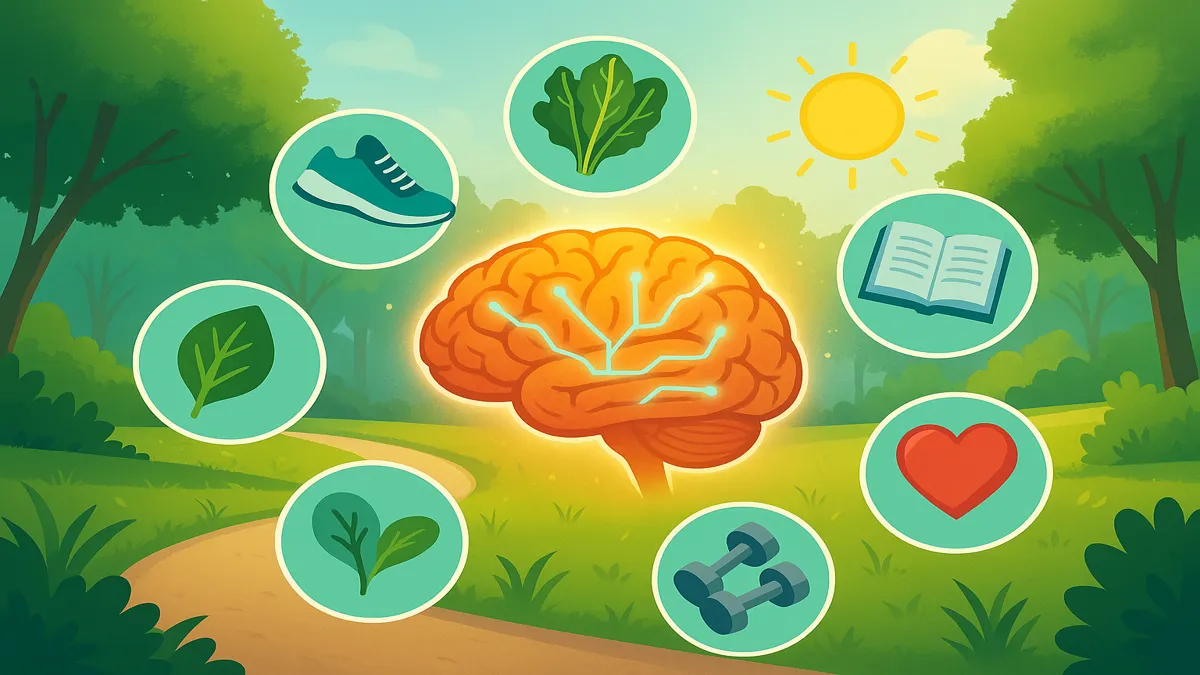Landmark Research Reveals Diet, Exercise, and Social Engagement Can Slow Cognitive Aging
A major new study has found that making specific lifestyle changes—improving diet, increasing exercise, and enhancing social and mental activities—significantly boosts brain health in people aged 60 to 79. The findings, unveiled at the Alzheimer’s Association International Conference and published in the Journal of the American Medical Association, offer fresh hope that age-related memory loss isn’t inevitable.
Key Findings
- Study Size and Scope: Over 2,100 inactive adults, ages 60 to 79, participated in a two-year intensive program combining heart-healthy eating, regular aerobic exercise, online cognitive training, and frequent social engagement.
- Impressive Results: Participants who followed the structured regimen saw much greater improvements in memory and thinking skills—comparable to those of people one to two years younger—than groups who simply received guidance to improve on their own.
- Target Population: The research focused on people at increased risk for cognitive decline and dementia, like those with family history or lifestyle-related risk factors.
- Support Matters: Individuals in the guided program benefited from regular coaching, check-ins, and group meetings, which experts say were crucial in helping participants form lasting habits.
What the Program Included
- Physical Activity: Four weekly aerobic workouts, plus strength and flexibility training.
- Diet: Adoption of a Mediterranean-like diet with plenty of leafy greens, berries, and olive oil, while reducing processed foods and saturated fats.
- Brain Training: Online cognitive games to challenge memory, reasoning, and concentration.
- Social Interaction: Group meetups and encouragement to maintain and expand social hobbies and conversation.
Expert Insights
“These individuals are achieving cognitive function scores comparable to those of people one to two years their junior,” explained lead researcher Dr. Laura Baker.
“There is no way to establish a new habit or modify behavior without intentional, regular effort. It’s simply not feasible (without support),” Dr. Baker emphasized.
Broader Implications
- The study did not directly address Alzheimer’s disease, but highlights that lowering “brain age” through lifestyle changes might help delay or reduce the risk of dementia.
- Both the Alzheimer’s Association and the National Institutes of Health are investing millions in ongoing research to further explore these lifestyle interventions.
What You Can Do
- Even if you’re already leading a healthy lifestyle, consider challenging yourself with new physical, mental, and social activities.
- Experts recommend treating lifestyle changes for brain health as seriously as a prescription: commit to routine, structured efforts for lasting impact.
- Social interaction—whether through group activities, friendships, or team learning—has a particularly strong effect on keeping the brain youthful.
In summary, the new research underscores that healthy aging and sharper memory are within reach through simple, supported lifestyle changes—making a strong case for everyone to move more, eat well, and stay connected.



















